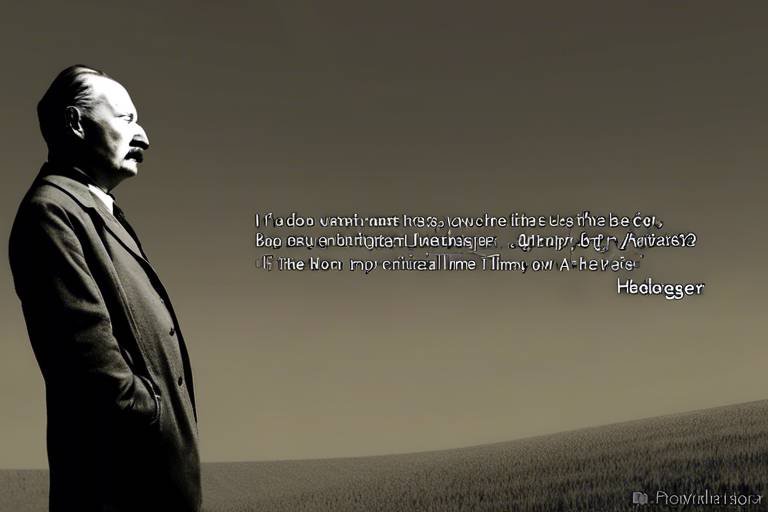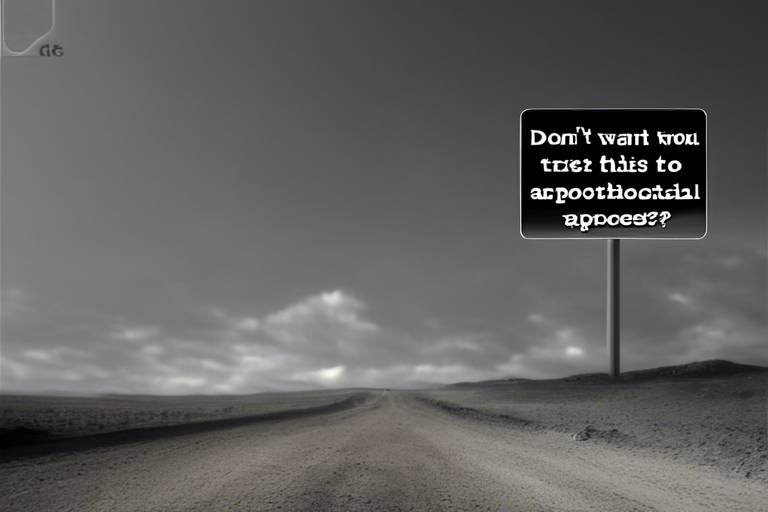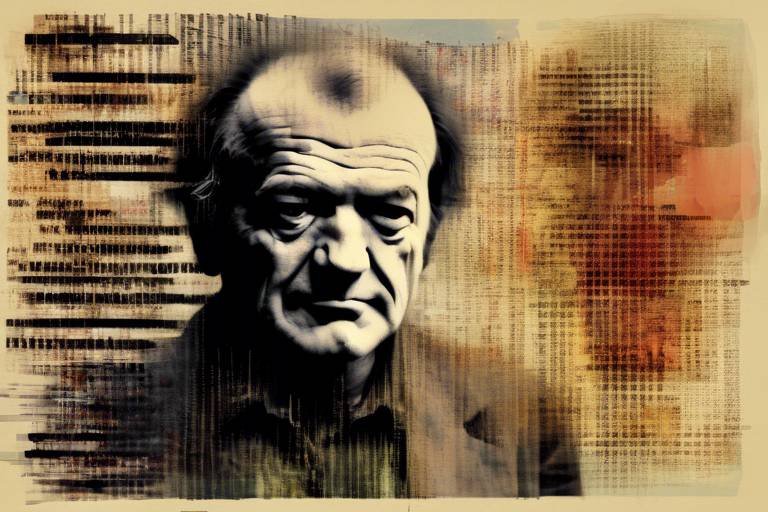Evolutionary Biology and Its Philosophical Implications
Welcome to the fascinating world where evolutionary biology meets philosophy. At first glance, these two fields might seem worlds apart, but they share a deep and intricate relationship that shapes our understanding of existence, ethics, and the very nature of life itself. Have you ever pondered the question of why we are here or what purpose our lives serve? Well, evolutionary biology offers a lens through which we can explore these profound inquiries, revealing the mechanisms behind the diversity of life and how these mechanisms influence our thoughts on morality and existence.
As we delve into this topic, we will uncover how the principles of natural selection, genetic drift, and speciation not only explain the rich tapestry of life on Earth but also challenge our philosophical assumptions about purpose and design. Imagine evolutionary biology as a grand narrative, a story of survival and adaptation that has unfolded over billions of years, with each chapter revealing new insights into our own human experience. The implications of these evolutionary processes stretch far beyond the biological realm, touching on questions of ethics, purpose, and the very essence of what it means to be human.
In this exploration, we will also examine various philosophical perspectives that arise from evolutionary thought. For instance, how does a materialist view of the world, where everything is governed by physical processes, affect our understanding of free will and determinism? Or, on the other hand, how do teleological arguments, which assert that there is inherent purpose in evolution, stand against a purely scientific interpretation? These questions are not just academic; they resonate deeply within our own lives and beliefs.
Furthermore, we will investigate how evolutionary biology informs our ethical frameworks. The dynamics of altruism and cooperation in nature provide a rich context for rethinking our moral philosophies. Can we attribute acts of kindness and selflessness to evolutionary advantages? Is there a biological basis for morality that transcends cultural differences? These questions challenge us to rethink traditional views of ethics and morality in light of our biological heritage.
So, buckle up for a journey that intertwines science and philosophy, where we will explore how our understanding of evolution not only illuminates the past but also shapes the future of human thought and behavior. As we navigate through these complex ideas, we will come to appreciate the profound implications that evolutionary biology has on our understanding of life itself.
- What is evolutionary biology?
Evolutionary biology is the study of the processes that have resulted in the diversity of life on Earth, focusing on the mechanisms of evolution such as natural selection, genetic drift, and speciation. - How does evolutionary biology relate to philosophy?
Evolutionary biology raises important philosophical questions about existence, purpose, and ethics, prompting discussions on materialism, teleology, and the nature of morality. - What are the philosophical implications of natural selection?
Natural selection challenges traditional notions of purpose and design in nature, leading to debates regarding free will, determinism, and the essence of human existence. - Can altruism be explained by evolution?
Yes, evolutionary biology provides insights into how altruistic behaviors can be advantageous for survival, suggesting that selflessness may have evolved as a beneficial trait. - How does evolution influence our understanding of ethics?
Insights from evolutionary biology encourage a reevaluation of moral frameworks, suggesting that our biological heritage plays a significant role in shaping our ethical beliefs and behaviors.

The Foundations of Evolutionary Biology
Evolutionary biology is a fascinating field that delves into the profound question of how life on Earth has developed over millions of years. At its core, this discipline is built upon several key principles that help us understand the complexity and diversity of living organisms. Among these principles, natural selection, genetic drift, and speciation stand out as fundamental mechanisms that drive evolutionary change.
To grasp the essence of evolutionary biology, we must first explore the concept of natural selection. Coined by Charles Darwin, this principle posits that organisms with traits better suited to their environment are more likely to survive and reproduce. Imagine a race where only the fastest runners make it to the finish line. In this race of life, those who adapt to their surroundings, whether through physical attributes or behavioral traits, have a better shot at passing their genes to the next generation. This process leads to the gradual evolution of species, as advantageous traits become more prevalent over time.
Next up is genetic drift, a mechanism that highlights the role of chance in evolution. Picture a small island with a limited population of birds. If a storm wipes out a significant portion of this population, the surviving birds may not represent the genetic diversity of the original group. As a result, the genetic makeup of future generations may shift dramatically, not necessarily due to natural selection but rather due to random events. This illustrates that evolution isn't solely about 'survival of the fittest'—sometimes, it's about who happens to be around after a crisis.
Another essential aspect of evolutionary biology is speciation, the process through which new species arise. This can occur in various ways, but one common method is through geographic isolation. Imagine two populations of the same species separated by a mountain range. Over time, as they adapt to their unique environments, they may evolve into distinct species, each with its own set of traits. This process not only enriches the tapestry of life on Earth but also highlights the dynamic nature of evolution, where change is constant and relentless.
Understanding these foundational principles is crucial, as they shape our perception of life itself. Evolutionary biology is not just about the past; it also informs our understanding of current biodiversity and the future of life on our planet. As we face challenges such as climate change and habitat destruction, the insights gained from evolutionary biology can guide conservation efforts and help us appreciate the intricate web of life that sustains us.
In summary, the foundations of evolutionary biology are built on the interplay of natural selection, genetic drift, and speciation. These principles not only explain how life has evolved but also challenge us to reconsider our place within the natural world. As we explore the philosophical implications of these concepts, we begin to understand that evolution is not merely a scientific theory; it is a profound narrative that connects all living beings in a shared journey of survival and adaptation.
- What is natural selection? Natural selection is the process where organisms better adapted to their environment tend to survive and produce more offspring.
- How does genetic drift differ from natural selection? Genetic drift is a random process that can lead to changes in a population's genetic makeup, while natural selection is a non-random process that favors advantageous traits.
- What is speciation? Speciation is the evolutionary process by which populations evolve to become distinct species.
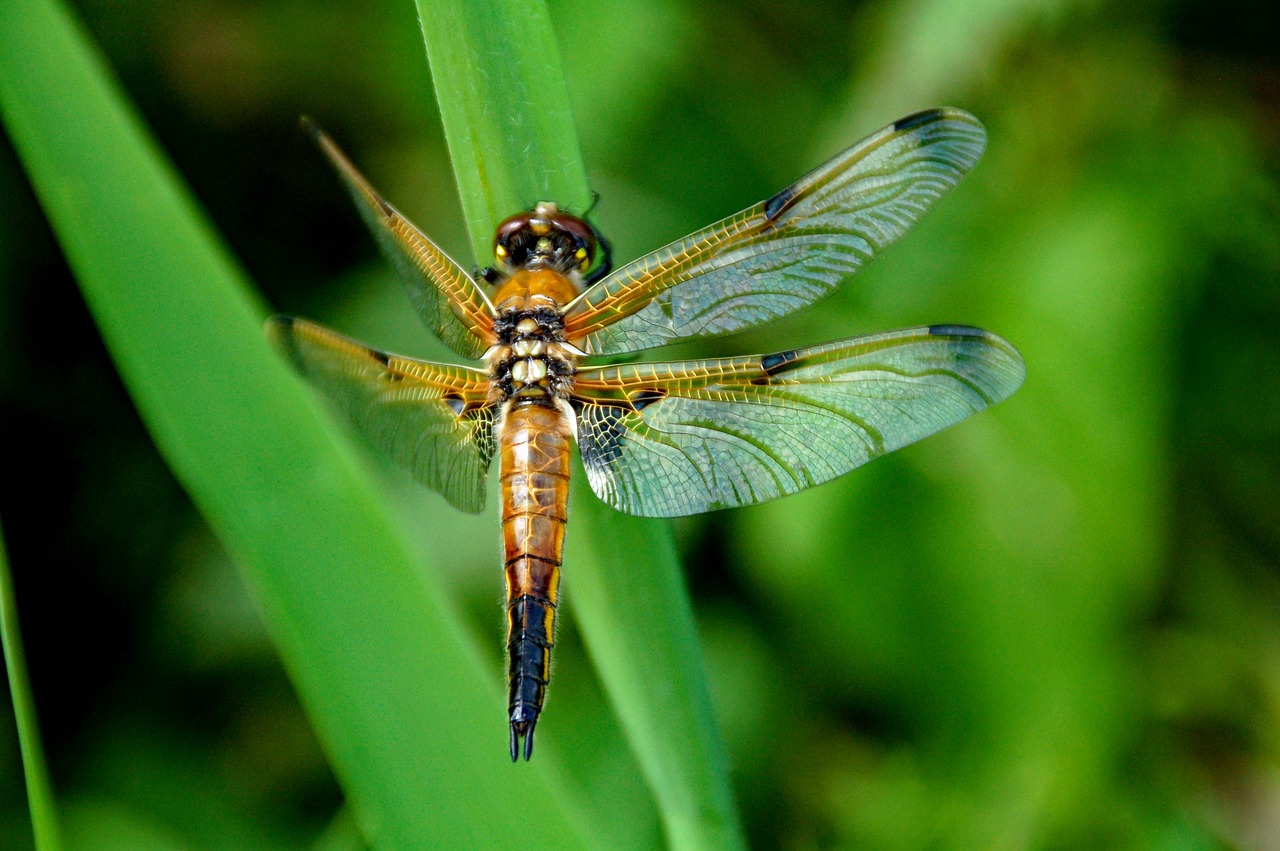
Philosophical Perspectives on Evolution
When we dive into the world of evolutionary biology, we quickly find ourselves in a sea of philosophical debates. It's like standing at the edge of a vast ocean, where each wave represents a different perspective on existence, purpose, and the very fabric of life. The interplay between evolution and philosophy is not just a dry academic exercise; it influences how we perceive ourselves and our place in the universe. From materialism to teleology, these philosophical viewpoints shape our understanding of what it means to be human.
One of the dominant philosophies in this arena is materialism. This viewpoint posits that everything in existence is a result of physical processes and interactions. Think of it as a grand machine, where every cog and gear plays a role in the unfolding story of life. In this framework, evolutionary theory aligns seamlessly with materialist beliefs, suggesting that our thoughts, emotions, and actions are all products of biological processes. This perspective challenges traditional notions of purpose and design, leading us to ask: if everything is just a series of random events, what does that mean for our understanding of meaning and intention?
Materialism's embrace of evolutionary theory brings forth a fascinating discussion about the role of chance in the grand tapestry of life. Imagine flipping a coin; the outcome is uncertain, yet it can lead to a cascade of events. In evolutionary terms, random mutations and environmental factors shape species over time, leading to the incredible diversity we see today. This randomness raises questions about determinism and free will. If our choices are influenced by genetic predispositions and environmental stimuli, can we truly claim to have free will? It’s a philosophical conundrum that keeps thinkers awake at night.
On the flip side, critiques of materialism emerge, challenging the notion that life is merely a mechanical process devoid of purpose. Some argue that the complexity and beauty of living organisms suggest a design beyond mere chance. For instance, the intricate structures of a flower or the sophisticated behaviors of social animals seem to hint at an underlying intention. This perspective invites us to reconsider the role of purpose in evolution. Are we simply products of random chance, or is there a greater force at play guiding the evolutionary process? This debate is akin to a philosophical tug-of-war, pulling us in different directions.
Another philosophical perspective is teleology, which posits that there is inherent purpose in the evolutionary process. Advocates of teleological views argue that evolution is not just a series of random events but a journey towards greater complexity and consciousness. This perspective invites us to see evolution as a narrative with a direction, a story that unfolds with intention. It contrasts sharply with the materialist view, suggesting that our existence is not just a product of chance but a meaningful journey through time.
As we navigate these philosophical waters, it becomes clear that our understanding of evolution is deeply intertwined with our worldview. The implications of these perspectives extend beyond academic discussions; they influence how we approach ethics, morality, and our responsibilities towards one another and the planet. By exploring these philosophical perspectives, we not only enrich our understanding of evolution but also gain insights into the very essence of what it means to be human.
- What is the relationship between evolutionary biology and philosophy?
Evolutionary biology provides a framework for understanding the development of life, while philosophy helps us interpret the implications of these biological processes on existence and purpose. - How does materialism view evolution?
Materialism views evolution as a process governed by physical laws, suggesting that life is a result of random chance rather than intentional design. - What is teleology in the context of evolution?
Teleology posits that there is an inherent purpose in the evolutionary process, suggesting that evolution is a journey towards greater complexity and consciousness. - Can chance influence our understanding of free will?
Yes, the role of chance in evolution raises questions about determinism and free will, prompting discussions about whether our choices are truly our own or shaped by biological factors.
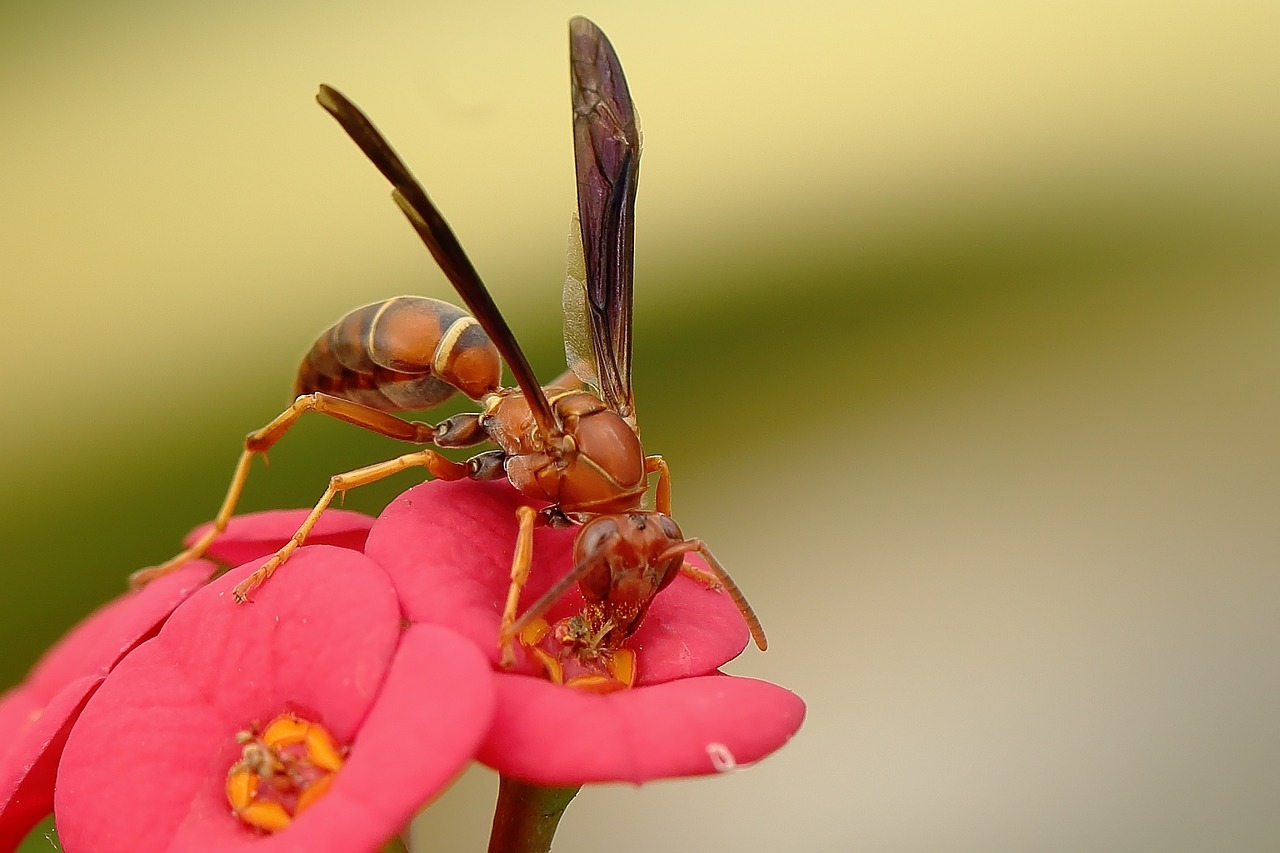
Materialism and Evolution
When we dive into the depths of materialism and its relationship with evolutionary theory, we're stepping into a fascinating world where the physical reigns supreme. Materialism posits that everything that exists is made up of matter, and that all phenomena, including consciousness and life itself, can be explained through physical processes. This perspective aligns seamlessly with the principles of evolutionary biology, which emphasizes that life evolves through mechanisms such as natural selection, genetic drift, and mutation. But what does this mean for our understanding of existence? Does it strip life of its inherent purpose?
One of the most striking implications of a materialist view of evolution is the challenge it poses to traditional notions of purpose and design. In a universe governed by chance and physical laws, the idea that life is directed towards a specific goal or end can seem rather quaint. Consider how the evolutionary process unfolds: it’s a complex dance of random mutations and environmental pressures, leading to the survival of traits that enhance reproductive success. This randomness can be unsettling. It begs the question: if chance plays such a significant role, what does that mean for our sense of agency and free will?
To illustrate this, let’s think of evolution as a vast, unpredictable river. Along its banks, countless species emerge and vanish, shaped by the currents of chance and necessity. Just like a river can carve out new paths, so too can random mutations lead to unexpected evolutionary pathways. This perspective can be liberating, yet it also raises profound questions about our place in the universe. Are we merely products of chance, or is there something more at play?
When we examine the role of chance in evolution, we encounter a fascinating paradox. On one hand, the randomness inherent in genetic mutations is fundamental to the process of evolution. On the other hand, this randomness challenges deterministic views of life. If our traits are shaped by chance, can we truly claim that our choices are free? This leads us to ponder the relationship between determinism and free will in a materialist framework. Are our decisions merely the result of biochemical reactions, or do we possess a genuine capacity for choice?
Critics of materialism argue that reducing life to mere physical processes overlooks the richness of human experience. They contend that the search for meaning and purpose is an intrinsic part of being human, one that cannot be fully explained by evolutionary biology alone. For instance, the feeling of love, the pursuit of knowledge, and the quest for justice all seem to transcend mere survival instincts. Some philosophers suggest that these aspects of human experience hint at a deeper reality, one that materialism struggles to encompass.
Critiques of materialism within the context of evolution often focus on the argument that a purely mechanistic view of life fails to account for the complexities of human consciousness and morality. While materialism provides a robust framework for understanding the biological aspects of life, it can feel inadequate when grappling with the existential questions that define our humanity. For instance, how do we reconcile the instinct to survive with our capacity for altruism? Can acts of kindness and selflessness be understood through a purely materialistic lens?
In summary, the intersection of materialism and evolutionary theory presents a captivating yet challenging landscape. While materialism offers a compelling explanation for the mechanics of life, it raises profound questions about purpose, agency, and the essence of what it means to be human. As we navigate this complex terrain, we find ourselves at the crossroads of science and philosophy, where the quest for understanding continues to evolve.
- What is materialism in philosophy?
Materialism is the belief that everything that exists is made of matter, and that all phenomena can be explained through physical processes. - How does materialism relate to evolution?
Materialism aligns with evolutionary theory by suggesting that life evolves through natural processes, without the necessity of inherent purpose or design. - What are the implications of chance in evolution?
The role of chance in evolution raises questions about determinism and free will, challenging our understanding of agency in a materialistic framework. - What are the critiques of materialism?
Critics argue that materialism overlooks the complexities of human experience, including consciousness, morality, and the search for meaning.
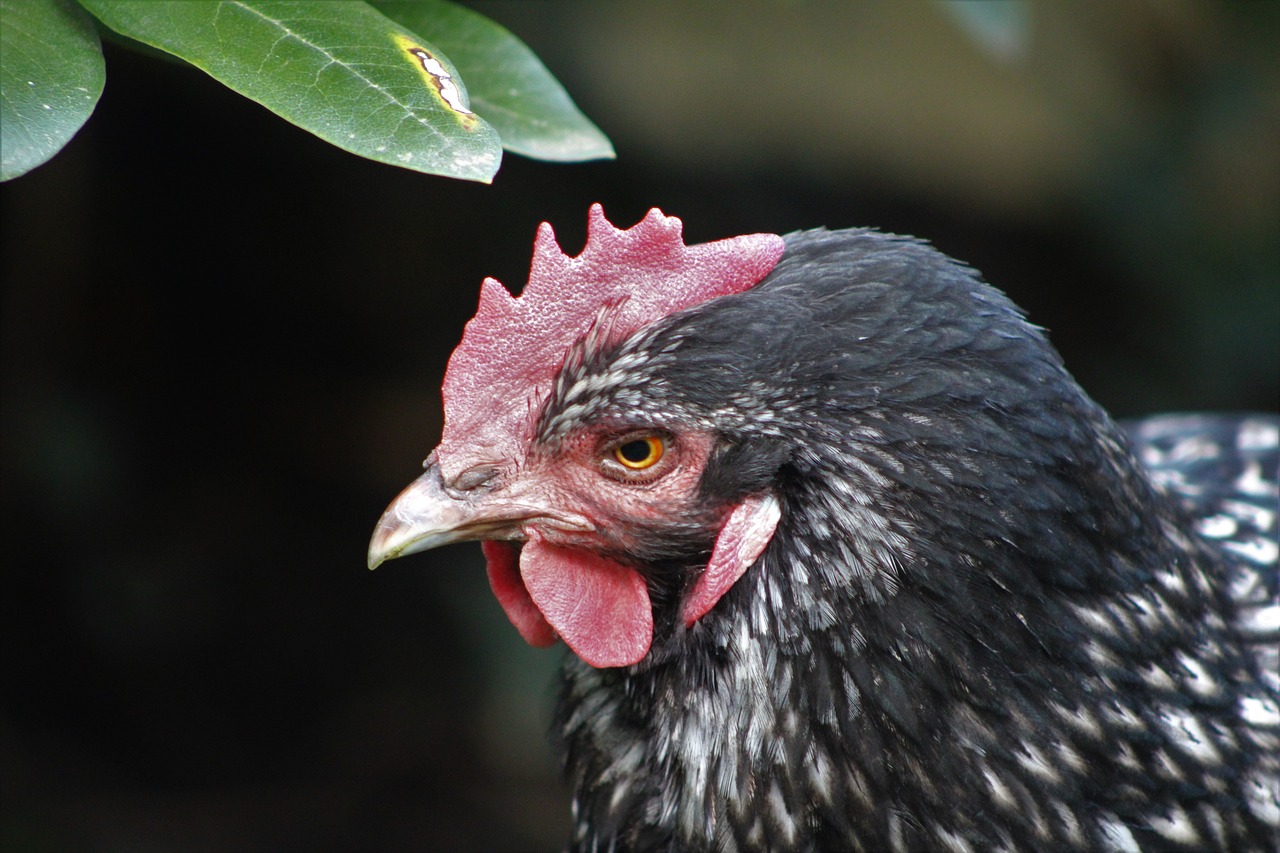
The Role of Chance in Evolution
When we think about evolution, the image that often springs to mind is one of a grand, deterministic process, where species gradually morph and adapt in a predictable manner. However, chance plays a surprisingly significant role in shaping the evolutionary narrative. Imagine a game of dice—each roll introduces a new possibility, and similarly, in the evolutionary world, random events can dramatically alter the course of life on Earth. This randomness can manifest in various forms, such as genetic mutations, environmental changes, and even catastrophic events like asteroid impacts.
Genetic mutations, for instance, are often viewed as the raw material of evolution. These mutations occur randomly and can lead to new traits within a population. Some of these traits may offer a survival advantage, while others may be detrimental. The key takeaway here is that not all mutations are beneficial, yet they contribute to the genetic diversity that fuels natural selection. It's akin to a painter randomly splattering colors on a canvas—some splashes might create a masterpiece, while others may simply be chaotic. But in both cases, the randomness is essential to the final artwork.
Furthermore, the environment itself can introduce chance elements that impact evolutionary outcomes. For example, consider a sudden climate shift that favors certain traits over others. Species that happen to possess advantageous traits will thrive, while others may struggle to survive. This is where the concept of punctuated equilibrium comes into play, suggesting that evolution doesn't always occur at a steady pace; instead, it can happen in bursts, often triggered by random environmental changes. Think of it as a roller coaster ride—there are moments of slow ascent followed by sudden drops that can change everything in an instant.
Moreover, the role of chance raises intriguing questions about determinism and free will. If so much of evolution hinges on random events, what does this mean for our understanding of life's purpose? Are we merely products of chance, or is there a deeper design at work? This philosophical inquiry invites us to ponder our place in the universe, much like a traveler questioning their path in an unpredictable journey. The implications of chance in evolution extend beyond biology; they seep into our understanding of existence itself.
In summary, while evolutionary processes are often framed within the context of natural selection and adaptation, it is essential to acknowledge the profound impact of chance. From random mutations to environmental upheavals, these unpredictable factors not only drive evolution but also challenge our perceptions of purpose and design in nature. As we continue to explore the intricate tapestry of life, we must embrace the role of chance as both a creator and a disruptor, shaping the world in ways we are only beginning to understand.
- How do random mutations contribute to evolution? Random mutations introduce genetic diversity, which natural selection can act upon, leading to the evolution of new traits.
- What is punctuated equilibrium? Punctuated equilibrium is a theory that suggests evolution occurs in rapid bursts, often following significant environmental changes.
- Does chance undermine the idea of purpose in evolution? While chance introduces randomness, it also opens up discussions about the nature of purpose and design in the evolutionary process.
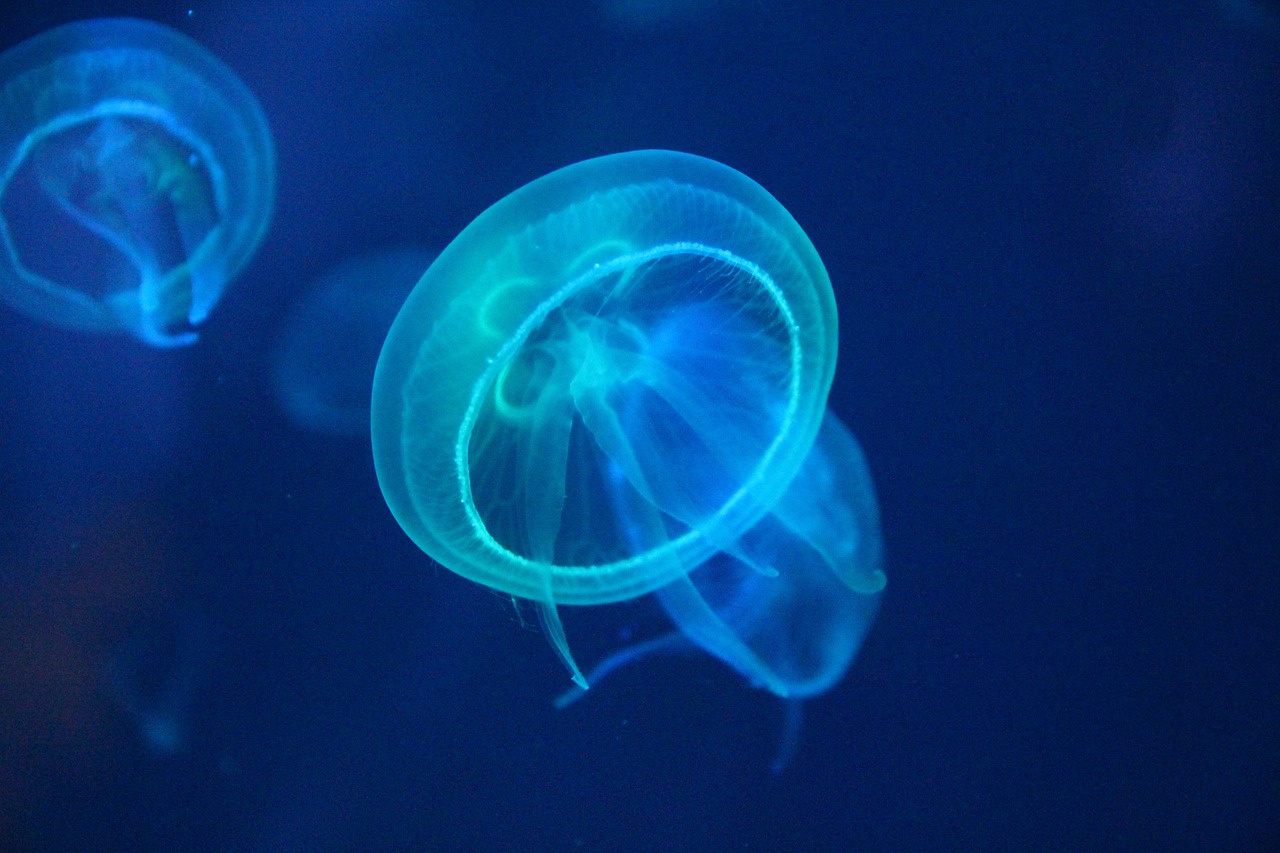
Critiques of Materialism
When we dive into the realm of materialism within the context of evolutionary biology, we encounter a fascinating yet contentious landscape. Materialism posits that everything that exists is made up of matter and that all phenomena, including consciousness and life itself, can be explained through physical processes. However, this perspective has faced significant critiques that challenge its sufficiency in explaining the complexities of life and existence.
One of the primary critiques of materialism is its tendency to reduce the rich tapestry of human experience to mere biological and chemical interactions. Critics argue that this reductionist view overlooks the subjective qualities of human consciousness, emotions, and moral reasoning. They contend that while material processes undoubtedly play a role in shaping behavior, they do not fully account for the intricate layers of meaning and purpose that individuals ascribe to their lives. For instance, can we truly understand love, art, or ethical dilemmas solely through the lens of evolutionary advantage? Many philosophers argue that materialism fails to capture the essence of what it means to be human.
Furthermore, the critique extends to the notion of purpose in evolution. Materialism suggests that evolutionary processes are driven by chance and necessity, leading to a mechanistic view of life. However, some critics argue that this perspective strips away the inherent purpose that many people feel in their lives. They propose that there may be an underlying intention or direction to evolution that materialism does not adequately address. This leads to philosophical discussions about whether life is a series of random events or if there is a greater design at play.
Another significant point of contention is the idea of free will. If we accept a purely materialistic view of evolution, it raises questions about the extent of human agency. Are our choices merely the result of genetic predispositions and environmental stimuli? This deterministic outlook can be unsettling, as it challenges the traditional view of moral responsibility. Critics argue that if we are simply products of our biology, how can we hold individuals accountable for their actions? This debate touches on the very foundations of our legal and moral systems, prompting a reevaluation of concepts such as justice and accountability.
In contrast to materialism, some philosophical perspectives advocate for a more holistic understanding of life. These perspectives suggest that life cannot be fully understood through physical processes alone. They argue for the inclusion of metaphysical dimensions, such as consciousness and existential meaning, which materialism tends to overlook. This leads to a richer discourse about the nature of existence and the potential for a purpose-driven life, challenging the notion that we are merely biological machines.
Ultimately, the critiques of materialism underscore a broader philosophical inquiry into the nature of existence itself. They invite us to consider questions such as:
- Is there more to life than what can be observed and measured?
- Can we find meaning and purpose in a world governed by chance?
- How do we reconcile our understanding of free will with our biological heritage?
These questions not only challenge materialist views but also enrich our understanding of human experience, urging us to explore beyond the confines of strict scientific explanations. As we continue to navigate the intersection of evolutionary biology and philosophy, it becomes increasingly clear that a singular perspective may not suffice in capturing the full essence of life.
- What is materialism in the context of evolutionary biology?
Materialism is the philosophical view that everything that exists is composed of matter and that all phenomena can be explained through physical processes. - Why do critics argue against materialism?
Critics argue that materialism oversimplifies human experience, overlooks the complexity of consciousness, and challenges notions of purpose and free will. - How does materialism affect our understanding of ethics?
Materialism can lead to deterministic views of human behavior, raising questions about moral responsibility and accountability. - What alternative perspectives challenge materialism?
Philosophical perspectives that advocate for holistic understandings of life, including metaphysical dimensions, challenge the materialist viewpoint.

Teleological Views on Evolution
When we dive into the realm of , we encounter a fascinating perspective that suggests there is an inherent purpose or direction within the evolutionary process. Unlike the strictly scientific interpretations that focus on random mutations and natural selection, teleology posits that life is not merely a series of accidents but rather a journey with a destination. This perspective raises some compelling questions: Is there a grand design behind the complexity of life? Are we, as humans, more than just the product of chance?
At the heart of teleological thought is the idea that evolution is not just about survival of the fittest, but about the unfolding of a greater purpose. Proponents of this view argue that certain traits and behaviors in organisms, particularly in humans, can be seen as manifestations of a deeper meaning. For instance, the emergence of consciousness, morality, and social structures may suggest that life is evolving towards a more complex and interconnected state. This leads to an exciting dialogue between science and philosophy, where both domains can enrich our understanding of existence.
To illustrate this concept, consider the following aspects of teleological perspectives:
- Purpose in Nature: Many teleologists argue that various biological features serve specific functions that contribute to the overall stability and harmony of ecosystems.
- Human Uniqueness: The human capacity for self-reflection, creativity, and ethical reasoning is often viewed as evidence of a purpose-driven evolution.
- Evolutionary Progress: Some theorists suggest that evolution is not just about adaptation but also about progress towards greater complexity and consciousness.
However, it's essential to recognize that teleological views are not without their critiques. Critics often point out that attributing purpose to evolution can lead to the notion of a predetermined path, which contradicts the randomness inherent in natural selection. They argue that while we can observe patterns and trends in evolution, these do not necessarily imply a guiding force or ultimate aim. This debate between teleology and randomness is a vibrant area of philosophical inquiry, challenging us to reconsider our place in the natural world.
In conclusion, the teleological perspective on evolution invites us to ponder profound questions about our existence and the nature of life itself. It challenges us to look beyond the mechanics of biology and consider the broader implications of our evolutionary journey. Are we simply products of chance, or is there a deeper significance to our existence? This ongoing dialogue between science and philosophy continues to shape our understanding of what it means to be alive in a complex and ever-evolving universe.
- What is teleology in the context of evolution? Teleology refers to the idea that there is a purpose or direction in the evolutionary process, suggesting that life evolves towards greater complexity and meaning.
- How does teleological thinking differ from materialism? While materialism focuses on physical processes and randomness, teleological thinking posits that there is an inherent purpose guiding evolution.
- Can teleological views coexist with scientific explanations of evolution? Yes, many believe that teleological perspectives can complement scientific views by providing a broader understanding of life's complexity.
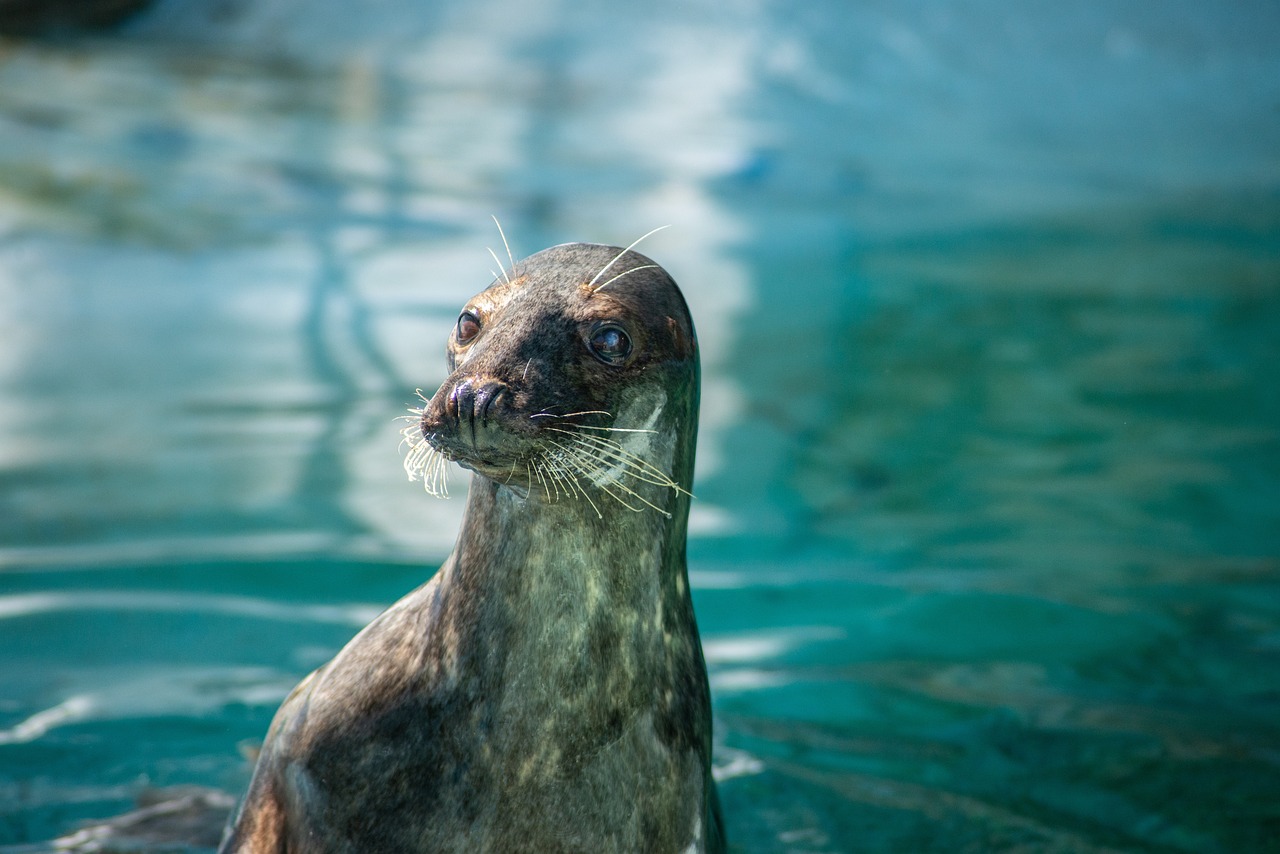
Ethics and Evolutionary Biology
The relationship between ethics and evolutionary biology is a fascinating area of study that helps us understand not only the origins of our moral beliefs but also the underlying principles that govern human behavior. As we delve into this subject, we encounter the intriguing question: how do evolutionary processes shape our ethical frameworks? This exploration reveals that our moral instincts may be deeply rooted in our biological heritage, influenced by the mechanisms of natural selection and social cooperation.
One of the most compelling aspects of this discussion is the concept of altruism. Altruistic behavior, which is often perceived as selfless acts performed for the benefit of others, can be understood through the lens of evolutionary biology. Surprisingly, these acts are not merely random acts of kindness; they can be advantageous for the survival of a species. For instance, when individuals engage in altruistic behavior, they may enhance the survival chances of their relatives, thereby ensuring that their genetic material continues to be passed on. This leads us to a profound realization: our moral inclinations might not be as abstract as we once thought, but rather, they could be biologically ingrained responses shaped by millions of years of evolution.
Moreover, the implications of this evolutionary perspective extend to our understanding of moral philosophy. Traditional ethical theories often struggle to explain the origins of our moral intuitions. However, by integrating insights from evolutionary biology, we can start to see how concepts such as justice, fairness, and cooperation may have evolved as adaptive strategies. For example, societies that foster cooperation among their members tend to thrive, as individuals work together to achieve common goals. This raises further questions: if our ethical beliefs are shaped by evolutionary processes, does that mean they are inherently flexible? Can our understanding of morality evolve just as we do?
To visualize this relationship, consider the following table that outlines how evolutionary biology influences various ethical theories:
| Ethical Theory | Influence of Evolutionary Biology |
|---|---|
| Utilitarianism | Focus on maximizing well-being, reflecting social cooperation. |
| Deontological Ethics | Principles may arise from innate moral instincts shaped by evolution. |
| Virtue Ethics | Emphasizes character traits that promote social harmony, influenced by evolutionary advantages. |
In conclusion, the intersection of ethics and evolutionary biology not only enriches our understanding of human behavior but also challenges us to reconsider our moral frameworks. It invites us to ask profound questions about the nature of morality: Are our ethical beliefs fixed, or can they evolve? How do our biological instincts interact with societal norms? As we ponder these questions, we realize that the study of ethics in the context of evolution is not merely an academic exercise; it is a journey into the very essence of what it means to be human.
- How does evolutionary biology explain altruism?
Evolutionary biology suggests that altruism can be advantageous for survival, especially when it benefits relatives, thus ensuring the continuation of shared genes. - Can our moral beliefs change over time?
Yes, as society evolves and new challenges arise, our moral frameworks can adapt, reflecting our biological and social evolution. - What role does cooperation play in human evolution?
Cooperation has been essential for human survival, leading to stronger communities and greater chances of success in challenging environments.

Altruism and Evolution
When we think about altruism, it often conjures up images of selfless acts—people helping others without any expectation of reward. But have you ever wondered why such behavior exists in the animal kingdom and, by extension, in humans? This is where evolutionary biology steps in, providing fascinating insights into the roots of altruistic behavior. At first glance, it might seem counterintuitive for individuals to act in ways that benefit others at their own expense. However, evolutionary theory suggests that these selfless acts can actually enhance the survival of a species.
One of the key concepts in evolutionary biology is natural selection, which posits that traits that enhance an organism's chances of survival and reproduction are more likely to be passed on to subsequent generations. But how does altruism fit into this picture? The answer lies in the idea of kin selection. This theory posits that individuals are more likely to engage in altruistic behavior towards their relatives, as doing so increases the chances of shared genes being passed on. For instance, if a bird risks its life to warn its flock of an approaching predator, it is not just protecting itself but also safeguarding its kin, thus ensuring that its genetic material continues.
Moreover, altruism can also be explained through the concept of reciprocal altruism. This idea suggests that individuals may act selflessly with the expectation that the favor will be returned in the future. Think of it as a social contract where helping others creates a network of mutual support. In human societies, this kind of behavior can be seen in friendships and community interactions, where acts of kindness often lead to stronger social bonds and increased cooperation.
To illustrate this concept further, consider the following table that summarizes key types of altruism:
| Type of Altruism | Description | Example |
|---|---|---|
| Kin Selection | Helping relatives to increase shared genetic success. | A mother bird feeding her chicks. |
| Reciprocal Altruism | Helping others with the expectation of future help. | Friends helping each other move. |
| Group Selection | Altruistic behavior that benefits the larger group. | Members of a tribe working together for common goals. |
While evolutionary biology provides a compelling framework for understanding altruism, it also raises important questions about the nature of morality. If our altruistic behaviors are driven by biological imperatives, what does that mean for our moral choices? Are we simply following our instincts, or do we have the capacity for true moral reasoning? This intersection of biology and ethics is a rich area for exploration, prompting us to reconsider our understanding of what it means to be altruistic.
In summary, the study of altruism through the lens of evolutionary biology reveals a complex interplay between genetics, social behavior, and morality. It challenges us to think about the motivations behind our actions and the inherent connections we share with others. Just as the threads of a tapestry are woven together to create a beautiful picture, our acts of kindness and selflessness contribute to the intricate fabric of human society, reminding us that we are all part of something greater.
- What is altruism in evolutionary terms? Altruism refers to selfless behavior that benefits others, often explained through concepts like kin selection and reciprocal altruism in evolutionary biology.
- How does kin selection work? Kin selection suggests that individuals are more likely to help relatives to ensure the survival of shared genes.
- What is reciprocal altruism? This is the idea that individuals help others with the expectation of receiving help in return, fostering social bonds.
- Does altruism challenge our understanding of morality? Yes, it raises questions about whether our altruistic acts are instinctual or based on moral reasoning.
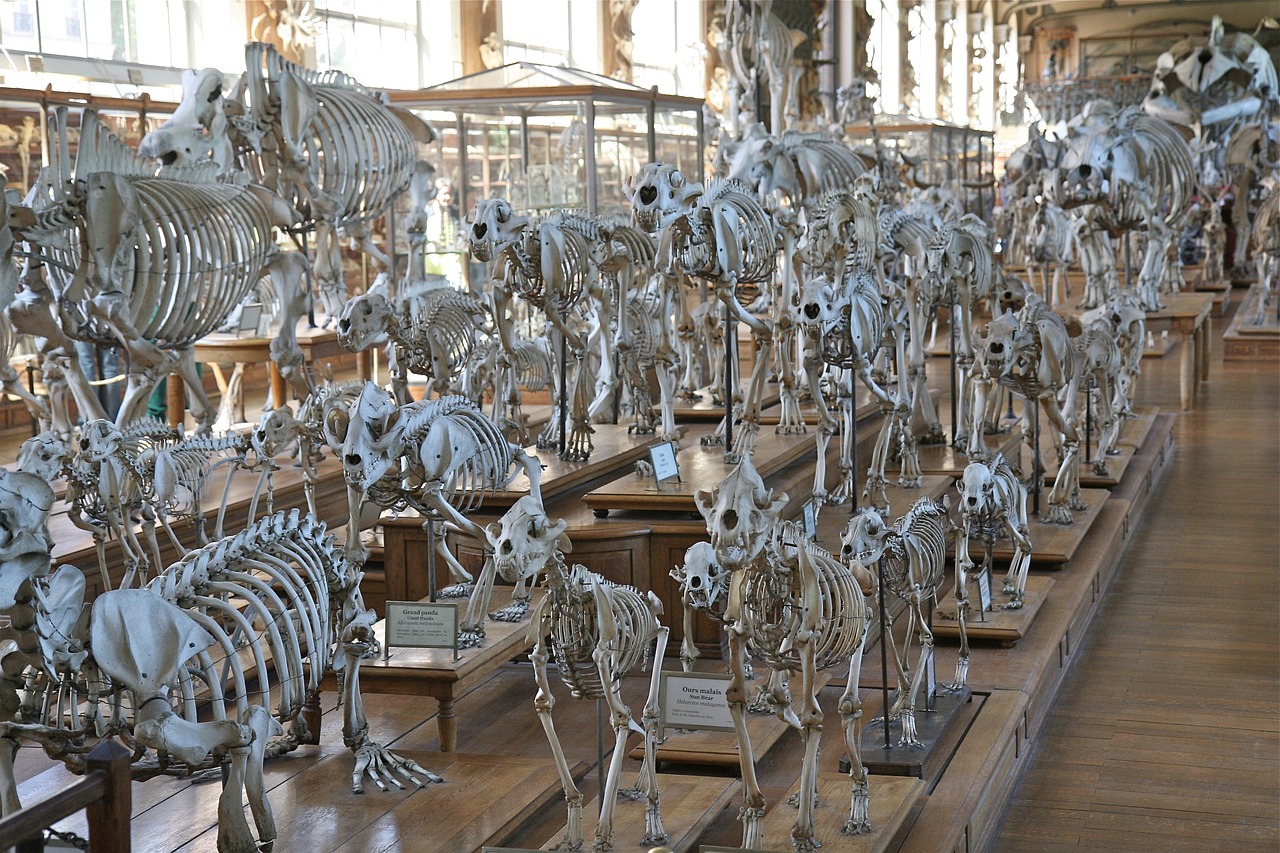
Implications for Moral Philosophy
When we dive into the implications of evolutionary biology on moral philosophy, we're not just skimming the surface; we're plunging into a deep, complex ocean of thought that challenges our very understanding of right and wrong. At its core, evolutionary biology suggests that our moral instincts are not merely products of cultural conditioning but are deeply rooted in our biological heritage. This realization invites us to reconsider the foundations of our ethical frameworks. For instance, if our moral behaviors evolved as adaptations for survival and reproduction, does that mean our sense of morality is inherently selfish, or can altruism be a genuine aspect of human nature?
One of the most intriguing aspects of this discussion is how evolutionary theory sheds light on the concept of altruism. Traditionally, altruism was seen as a selfless act, but through the lens of evolution, it can be understood as a behavior that enhances the survival of the species. Think about it: when individuals cooperate and help one another, they increase the chances of their genes being passed on to future generations. This perspective complicates the simplistic view of morality as purely altruistic. It raises questions like: Are we truly altruistic, or are we just acting in our self-interest under the guise of moral behavior?
Furthermore, the implications stretch into the realm of moral relativism. If our moral principles are influenced by evolutionary pressures, does that mean they are not universal? Are they merely adaptations to specific environments? This idea can lead to a slippery slope where one might argue that if morality is an evolutionary construct, then it lacks the absolute authority that many believe it holds. To illustrate this, consider how different cultures have developed varied moral systems based on their unique evolutionary histories. What one culture deems ethical, another might view as taboo. This variability can lead to a profound reevaluation of what we consider to be moral truths.
Moreover, the intersection of evolution and morality compels us to confront the concept of human rights. If we accept that our moral intuitions are shaped by evolutionary processes, how do we justify the existence of universal human rights? Are they merely social constructs, or do they stem from an inherent understanding of human dignity that transcends our biological underpinnings? The challenge lies in reconciling our biological instincts with the ideals of justice and equality that many strive to uphold. This tension invites a rich dialogue about the nature of justice itself, questioning whether it is a product of evolutionary necessity or a noble ideal we aspire to achieve.
In light of these reflections, it becomes clear that the implications of evolutionary biology for moral philosophy are profound and multifaceted. As we continue to explore this intersection, we must remain open to the possibility that our understanding of morality may evolve just as we have, adapting to new insights and discoveries. The journey of reconciling biology with ethics is not just an academic exercise; it’s a crucial endeavor that shapes our understanding of what it means to be human in a world that is constantly changing.
- How does evolutionary biology influence our understanding of morality?
Evolutionary biology suggests that our moral instincts may have developed as adaptations for survival, prompting us to reevaluate traditional ethical frameworks. - Can altruism be genuinely selfless if it has evolutionary roots?
While altruism may enhance survival, it raises questions about whether actions can be truly selfless or are motivated by underlying self-interest. - What are the implications of moral relativism in light of evolutionary theory?
If morality is shaped by evolutionary pressures, it challenges the idea of universal moral truths, leading to diverse ethical systems across cultures. - How do evolutionary insights affect the concept of human rights?
The relationship between our biological instincts and the ideals of justice and equality prompts a reevaluation of the foundations of human rights.
Frequently Asked Questions
- What is evolutionary biology?
Evolutionary biology is a branch of biology that studies the processes and patterns of biological evolution. It focuses on how species change over time through mechanisms like natural selection, genetic drift, and speciation, ultimately shaping the diversity of life we see today.
- How does evolutionary biology influence philosophical thought?
Evolutionary biology prompts us to reconsider our understanding of existence, ethics, and purpose. Philosophical perspectives such as materialism and teleology explore the implications of evolution on human life, questioning traditional views on design and purpose in nature.
- What role does chance play in evolution?
Chance is a significant factor in evolutionary processes, particularly through genetic drift and mutations. This randomness challenges deterministic views of life, leading to fascinating discussions about free will and the unpredictability of existence.
- Can evolution support the idea of altruism?
Yes! Evolutionary biology provides insights into altruism, suggesting that selfless behaviors can be advantageous for survival and reproduction. This challenges traditional ethical frameworks and raises questions about the nature of morality in human society.
- What critiques exist against materialism in the context of evolution?
Critics argue that materialism, which posits that physical processes govern life, overlooks potential purpose and design in evolution. They advocate for a more nuanced understanding that allows for the possibility of intrinsic meaning and direction in the evolutionary process.
- How does evolutionary biology challenge traditional moral frameworks?
Insights from evolutionary biology can lead to a reevaluation of concepts like morality, justice, and human rights by grounding them in our biological heritage. This prompts a deeper understanding of human behavior and the motivations behind our ethical choices.






